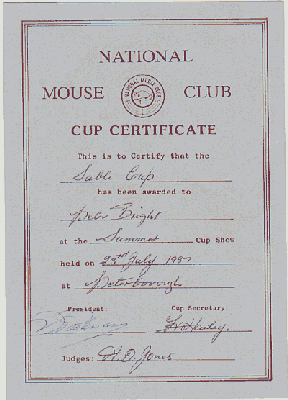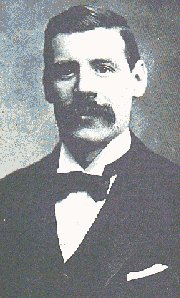|
Peter Bright
|
Peter
Bright - Artist Statement (these snippets could be mine) Words taken out of context lose their meaning. Publishing documents that contain controversial language puts the author at risk. Any constructed environment can promote alienation, but it can also enhance communication to form a quasi-organic platform for human interaction. The fact that most of us have an on-line persona suggests that computer communication enables us to visit places and have discussions with people we would normally avoid. We are engaging in the pseudo-anonymous system/society. Underground activities have migrated out of analog media (the printed word, film etc.) into 'this world'. This world has evolved into a global system with multiple layers in which new authorities compete to control its uses; platform wars, chip races, and operating system alliances. The pseudo-identity of the user is being exposed; law is punishing non-conformity, censorship and the rules of globalization have invaded the system. The Klondike Spirit has taken over the open system and turned it into the homogenized high street we all know. (A non-homogeneous system, whose terms and relationships are not constant, allows language to break up, to stumble over the rules of its grammar, by necessity it has to respond radically to other linguistic components, creating a new linguistic order and syntax. ) |
||||||||||||||||||||
|---|---|---|---|---|---|---|---|---|---|---|---|---|---|---|---|---|---|---|---|---|---|
|
My career has been split into two camps - Art & Business. I am a graduate from Exeter College of Art and Design ( I have also studied at Wolverhampton and Bristol Universities) and have exhibited (paintings and prints) and performed music. I am also a successful businessman. The dichotomy created by these two diverse vocations (Art & Business)split me in two: as an artist/musician I had great difficulty in adapting to conventional business practices - it was too structured, prescriptive and extremely dull. I then began to look at my business as a 'work of art' and adapted art methodologies to fit the business scenario. I began to 'think into the box' and my maverick attitude proved successful in turning a floundering business into a formidable enterprise and my position and integrity as an artist/musician remained intact.
'Often artists' groups have a core of members who initiate activities and support the rest of the group.' Not only is it important to support new groups, it is important for these founding members to fully understand the structures and reasons for creating new groups. They must be asked 'Why are you doing this?' and 'Are there other groups around that already fulfill your needs and aims?' Creating new artist groups/collectives could be counterproductive and create an even more fragmented environment. It is important that a robust armature is created for a network to succeed. If this is achieved then it would be a formidable and powerful organization. My skills are at the ‘start up’ phase of businesses and organizations, where the creativity of the entrepreneur or group is at its most inventive and vulnerable. I find the energy that is created very infectious but I know that this enthusiasm gradually dies and needs ‘mothering’ to take it to the next growth phase. To achieve sustainability is key, and I have wide and varied experience of achieving this both in a traditional business environment and in pioneering innovations. A mentoring scheme which enables artists and crafts people to access strategies and processes needed to create successful art and business practice would be highly beneficial to individuals and groups.
|
The Genetics
of Painting?
|
||||||||||||||||||||
|
|
||||||||||||||||||||
|
|
|
|
|||||||||||||||||||
|
|
|||||||||||||||||||||



